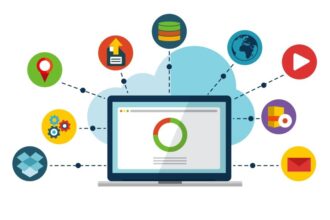Emerging Technologies: Cloud, Mobile, Business Intelligence (BI) and Big Data are changing the way we do business for the better. From a corporate standpoint the playbook to implement these technologies are normally very similar. This said, the playbook for Big Data/BI is going to require significant modifications if maximum success is to be achieved.
Emerging Technologies: Cloud, Mobile, Business Intelligence (BI) and Big Data are changing the way we do business for the better. From a corporate standpoint the playbook to implement these technologies are normally very similar. This said, the playbook for Big Data/BI is going to require significant modifications if maximum success is to be achieved.
In an article in Computer World in September of 2012 by Brian Hopkins (Principle Analyst at Forrester Research) outlines Forrester’s Emerging Technology Playbook. Hopkins argues that “in order to compete with digital disruptors, firms must take a new investment approach to emerging technology,” and outlines three key points:
 Step 1: Categorize and Prioritize Opportunities
Step 1: Categorize and Prioritize Opportunities- Business critical investments require project discipline
- Back-office investments require tangible returns
- Strategic technology investments are part of larger business transformation
- Future potential investments require experimentation
- Step 2: Evaluate Current Architecture Alignment
- Step 3: Select the Best Funding Approach
Overall I agree with his approach; however, the playbook for BI and Big Data needs to be a little more robust to be successful.
Impact on market strategy
All emerging technologies impact businesses, but in particular to successfully embrace and execute BI/Big Data executives must understand the impact it will have the vision of the company and the way that they think of themselves. The Director of Research at the International Institute for Analytics, and a Senior Advisor to Deloitte Analytics Thomas Davenpoint said it best in a recent WSJ column:
“We’re entering the data economy, where firms offer data-based products and services to their customers. Your customer offering may have previously been drugs, checking accounts, cars, or watches, but now you could be selling data, analytics, and insights as well.”
The most obvious example of this happening is on line commerce giant Amazon, which not only is selling you goods but recommending additional products based on what people who already purchased those goods also bought. A more subtle example is products that will sell you benchmarking analysis of similar people, organization and industries. For example, ERP software that runs a hospital will soon provide reports of not only the hospital’s operations but how those results compare to like hospitals across the countries.
While companies will still sell product and software, it is the data and analysis that is going to add the extra value and this is what customers are going to be demanding moving forward. Therefore CEOs and Senior Leaders need to start thinking about their productd and services in terms of data and how data can be incorporated to make their product/services better if they are going to be relevant in the mid to long term.
Impact to culture
In addition to having an impact on the way companies go to market business, Big Data and BI is also going to have an impact on your company’s culture. Until now companies that embraced data normally had it in silos or a task for a data specialist, IT department or anyone else but the day to day team member. In the new world of BI a company with a data-driven culture will be weaving it into the very fabric of the day to day operations, versus a single person or department. But this is not the only change.
In an article in CIO magazine entitled “Data-Driven Companies Outperform Competitors Financially,” Thor Olavsrud, points out that another affect of a data-driven culture is that it fosters more dialogue, collaboration and debate amongst team members. Olavsrud quotes Jim Giles, author of the Economist Intelligence Unit report, Fostering a Data-Driven Culture:
“They are placing data at the heart of almost all important decisions,” he says. “And they are tolerant of questioning—even dissent—about business decisions being made, as long as the questioning is based on data and their analysis. This is what it means to adopt a data-driven culture.”
It is this type of change that executives must be prepared as in most cases it will be substantial a cultural shift. Although beneficial most companies don’t encourage or expect this type of debate around business decisions and thus everyone must be prepared and embrace this type of interaction.
It is also important that executives realize moving forward that the top employees/performers are going to want to work with companies that have a “data culture.” Top performers are driven by results and thus having data that will help them make better decisions and then measure the outcome of said decisions makes these companies attractive. This said executives are going to have to understand there could be some conflict with underperforming team members that now are in the spotlight. Conversely, high performing team members will now feel more empowered, from this type of dialogue and thus more productive and committed to the company.
In summary, to be successful and fully leverage a corporate wide BI and Big Data initiative you need to realize that there has to be a section in the playbook around your go to market strategy and company culture. Ignoring this could limit maximizing the potential of this powerful emerging technology and movement.
(image: big data / shutterstock)







